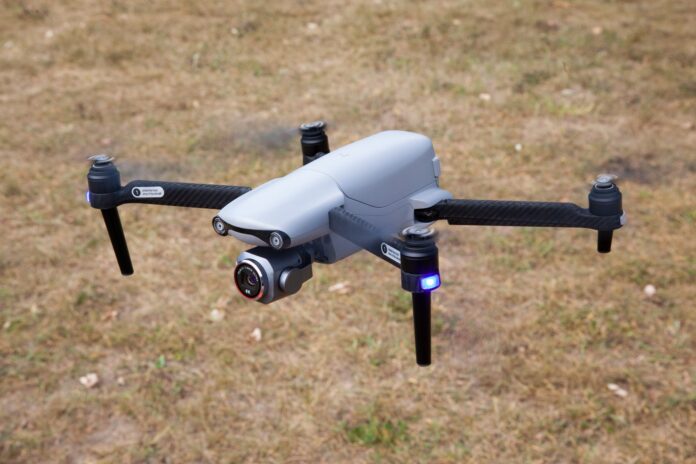Imagine a world where farming is not just about sowing seeds and hoping for the best. This world exists, and it’s called precision farming. Precision farming is a modern approach to agriculture, where every decision is data-driven, ensuring efficiency, sustainability, and higher yields. Now, let’s introduce a game-changer in this field: drone technology. Drones are not just for stunning aerial photography; they are revolutionizing agriculture in ways we never thought possible.
Understanding Precision Farming
To truly appreciate the role of drones in agriculture, we first need to dive into the concept of precision farming.
Definition and Goals of Precision Farming
Precision farming, often referred to as precision agriculture, is a cutting-edge approach to farming that leverages technology to optimize every aspect of crop production. At its core, precision farming aims to maximize efficiency, minimize resource wastage, and enhance overall productivity. It’s about doing more with less and making data-driven decisions.
Precision farming, at its core, is about making smart, informed decisions. It’s an approach to farm management that uses information technology and a wide array of items like GPS guidance, control systems, sensors, robotics, drones, autonomous vehicles, variable rate technology, automated hardware, telematics, and software. The goal? To ensure profitability, sustainability, and protection of the environment. Precision farming is about doing the right thing, in the right place, at the right time. If you’re eager to delve deeper into the world of precision farming, Farm Pioneer is your go-to source for expert insights and practical guidance on harnessing the power of technology in agriculture.
Evolution of Farming Practices
Farming has come a long way from traditional methods. In the past, farmers relied on their instincts and experiences to make decisions. Today, it’s a whole new ball game. The evolution from traditional to precision farming is akin to upgrading from a flip phone to a smartphone. It’s all about embracing technology to make farming more accurate and controlled. Enter drones, the new players on the farm, bringing with them a host of benefits that are transforming the agricultural landscape.
The Rise of Drone Technology in Agriculture
Agriculture, one of the oldest industries known to humanity, has been revolutionized by the rise of drone technology. In recent years, drones have soared into the agricultural landscape, offering innovative solutions to age-old challenges.
Historical Development of Drones for Farming
The journey of drones in agriculture is nothing short of remarkable. Initially, drones were associated with military and recreational use, far from the serene farmlands. However, their potential in agriculture soon became evident. The first agricultural drones were basic, serving primarily for aerial imaging. Farmers began to recognize the benefits of having a bird’s-eye view of their fields.
As technology advanced, so did agricultural drones. They evolved from simple image-capturing devices to sophisticated tools equipped with various sensors and capabilities. This transformation paved the way for drones to become indispensable in modern farming practices.
Basic Technology Behind Agricultural Drones
To understand how drones are revolutionizing agriculture, let’s take a peek under the hood and explore the technology that powers these flying wonders.
Agricultural drones are equipped with a range of sensors, including multispectral, thermal, and LiDAR (Light Detection and Ranging). These sensors provide invaluable data about crop health, moisture levels, and soil conditions. This data is then processed using advanced software to generate actionable insights for farmers.
One of the key features of agricultural drones is their ability to capture high-resolution images of fields. These images can reveal subtle differences in crop health and help identify issues such as pest infestations or nutrient deficiencies.
But it doesn’t stop there. Drones can also be equipped with precision spraying systems, allowing for targeted and efficient pesticide or fertilizer application. This not only reduces the use of chemicals but also minimizes environmental impact.
Moreover, the real-time data collected by drones enables farmers to make informed decisions about irrigation, crop rotation, and harvesting schedules. It’s like having a team of agronomists in the sky, constantly monitoring and optimizing crop production.
Key Benefits of Drones in Precision Farming
In the world of precision farming, drones are emerging as a game-changer, offering a multitude of benefits that are transforming the agricultural landscape.
Enhanced Crop Monitoring and Analysis
Real-time Data Collection: Drones take crop monitoring to a whole new level. These flying marvels are equipped with advanced sensors that capture real-time data from the fields below. This data includes crucial information about soil conditions, moisture levels, and even the health of the crops themselves. The beauty of it all? It’s instant. Farmers can access up-to-the-minute information about their fields, enabling them to make timely decisions that can significantly impact crop yields.
Health and Growth Tracking: One of the remarkable capabilities of agricultural drones is their ability to track the health and growth of crops with unmatched precision. By capturing high-resolution images and utilizing multispectral sensors, drones can detect even subtle changes in crop health. This means early detection of issues like pest infestations or nutrient deficiencies, allowing farmers to take swift corrective action.
Improved Resource Management
Precision in Pesticide and Water Usage: Gone are the days of blanket pesticide spraying. Drones bring precision to the application of pesticides and herbicides. Using GPS-guided systems, they can target specific areas of a field, reducing the need for excessive chemical use. This not only saves money but also minimizes the environmental impact.
When it comes to water management, drones play a crucial role in optimizing irrigation. They can identify areas of the field that require more or less water, ensuring efficient resource utilization. This precision in resource management is a game-changer for sustainable farming practices.
Soil and Field Analysis: Drones are equipped to provide detailed soil and field analysis. They can assess soil composition, moisture levels, and even identify areas prone to erosion. This information is invaluable for farmers, as it helps them tailor their farming practices to suit the unique characteristics of different parts of their fields. It’s like having a virtual soil scientist on hand.
Yield Optimization and Risk Management
Disease and Pest Detection: One of the greatest challenges in farming is dealing with diseases and pests. Drones equipped with thermal imaging and multispectral sensors can detect signs of disease or pest infestations long before they become visible to the naked eye. This early detection enables farmers to take proactive measures, reducing crop losses and the need for extensive chemical treatments.
Weather Impact Assessment: Weather is a constant variable in farming, and its unpredictability can pose significant risks. Drones can assess the impact of weather events on crops, helping farmers understand the extent of damage caused by factors like storms, frost, or drought. With this information, farmers can adjust their strategies and mitigate potential losses.
In the world of precision farming, drones are not just gadgets; they are invaluable tools that empower farmers with data-driven insights. From real-time crop monitoring to resource optimization and risk management, the benefits of drone technology are redefining the way we approach agriculture.
Challenges and Limitations
As promising as drone technology in agriculture may be, it’s not without its challenges and limitations.
Technical and Operational Hurdles
While drones offer tremendous potential, their technical and operational aspects can be daunting. Here are some key challenges:
- Complexity of Data: The wealth of data collected by drones can be overwhelming. Farmers need tools and expertise to effectively analyze and interpret this data.
- Cost: Acquiring and maintaining drone technology can be expensive. Small-scale farmers may find it challenging to invest in this technology.
- Training: Operating drones and interpreting the data require training. Farmers need to become familiar with new skills, which can be time-consuming.
Legal and Environmental Concerns
The use of drones in farming also raises legal and environmental considerations:
- Regulations: Drones are subject to regulations that vary by region. Navigating these legal frameworks can be complex.
- Privacy: Drones can capture images and data that may raise privacy concerns. Striking a balance between data collection and respecting privacy is crucial.
- Environmental Impact: While drones can reduce chemical usage through precision spraying, their production and operation have environmental implications. Sustainable practices are essential.
The Future of Drone Technology in Farming
The future of drone technology in farming is bright, with continued innovations and transformative trends on the horizon.
Emerging Innovations and Trends
- AI and Machine Learning: Drones will increasingly incorporate AI and machine learning algorithms for more advanced data analysis and decision-making.
- Swarm Technology: Swarm drones, operating collaboratively, will enhance efficiency in large-scale farming.
- Advanced Sensors: Miniaturized sensors will provide even more detailed data, allowing for better crop health assessment.
Predictions for Long-Term Impact
Looking ahead, here are some predictions for the long-term impact of drone technology in farming:
- Increased Productivity: Drones will contribute to higher crop yields through improved monitoring and resource management.
- Sustainability: Precision farming with drones will reduce environmental impact, aligning with sustainable agriculture practices.
- Access for Small Farmers: As technology evolves and becomes more affordable, even small-scale farmers will benefit from drone-assisted farming.
Conclusion
In summary, drone technology has ushered in a new era of precision farming. It offers enhanced crop monitoring, resource management, and risk assessment. However, it’s not without challenges, including technical complexity and legal considerations.
The future promises further innovations and positive long-term impacts, with drones playing a pivotal role in sustainable and productive agriculture. As we move forward, the integration of drones in precision farming is not just a possibility; it’s a necessity for the agriculture of tomorrow.















